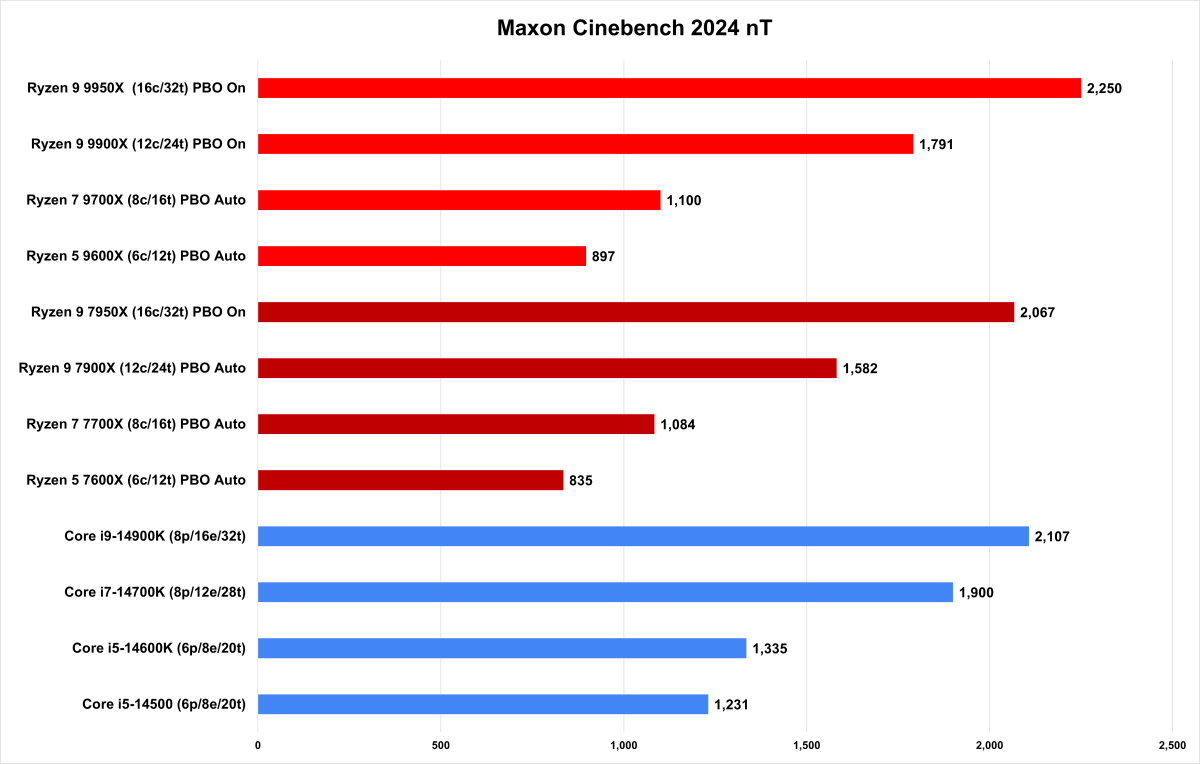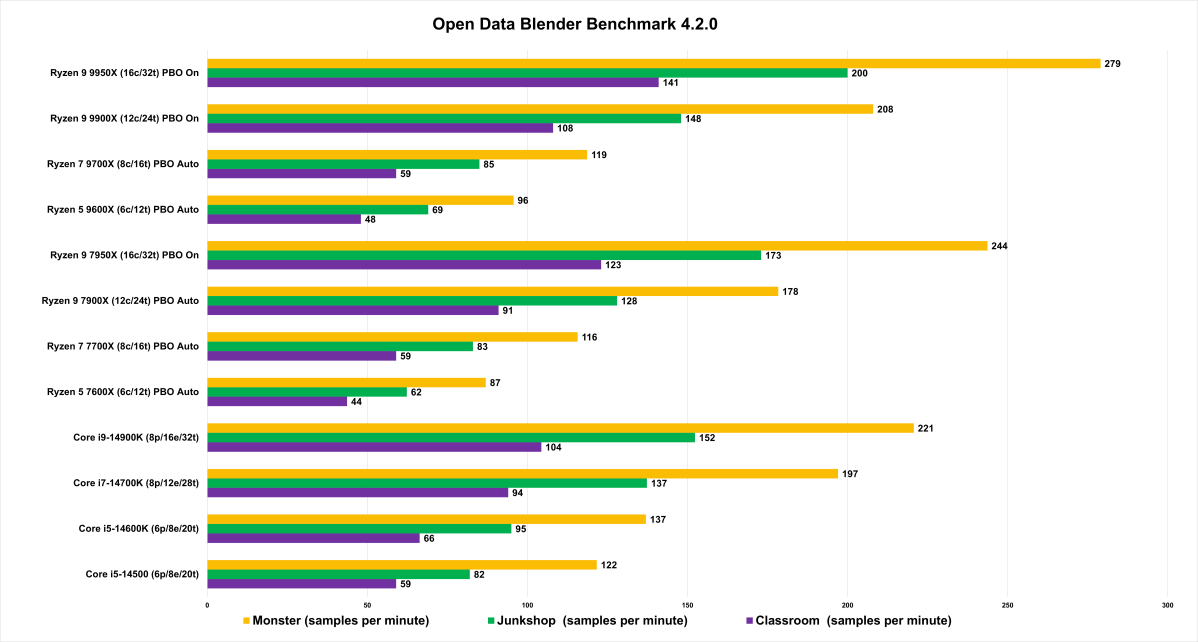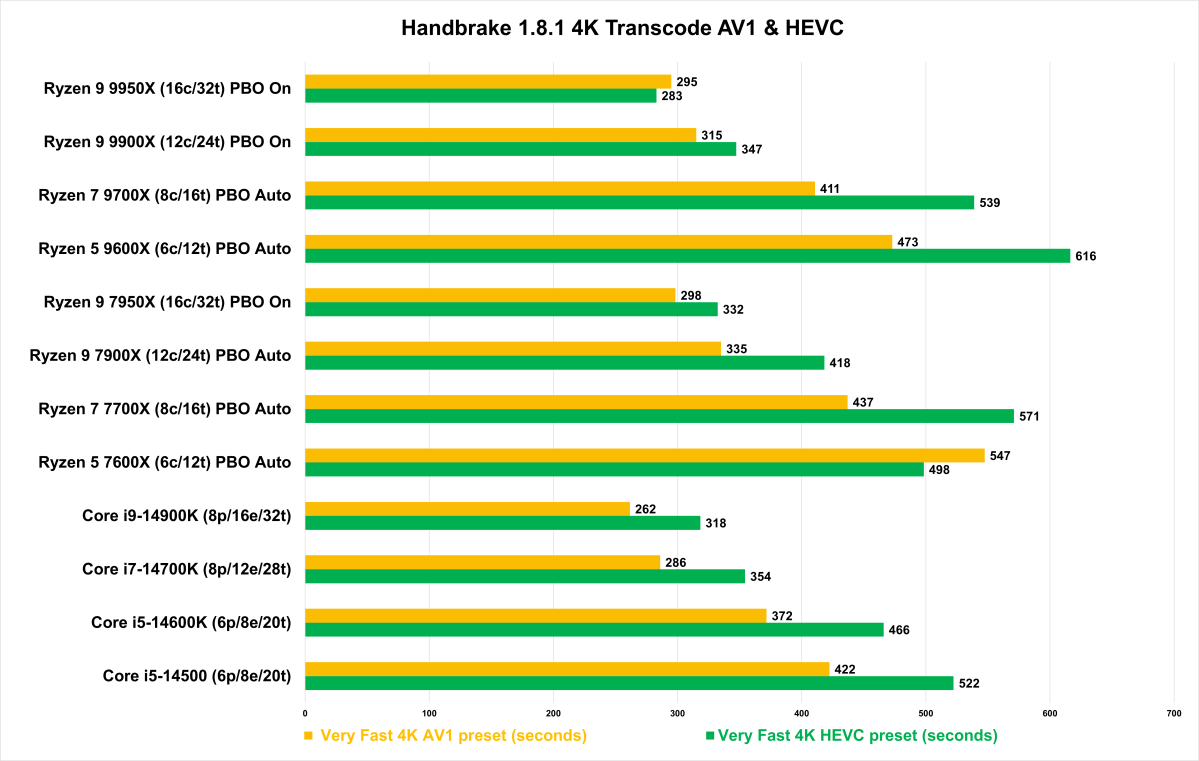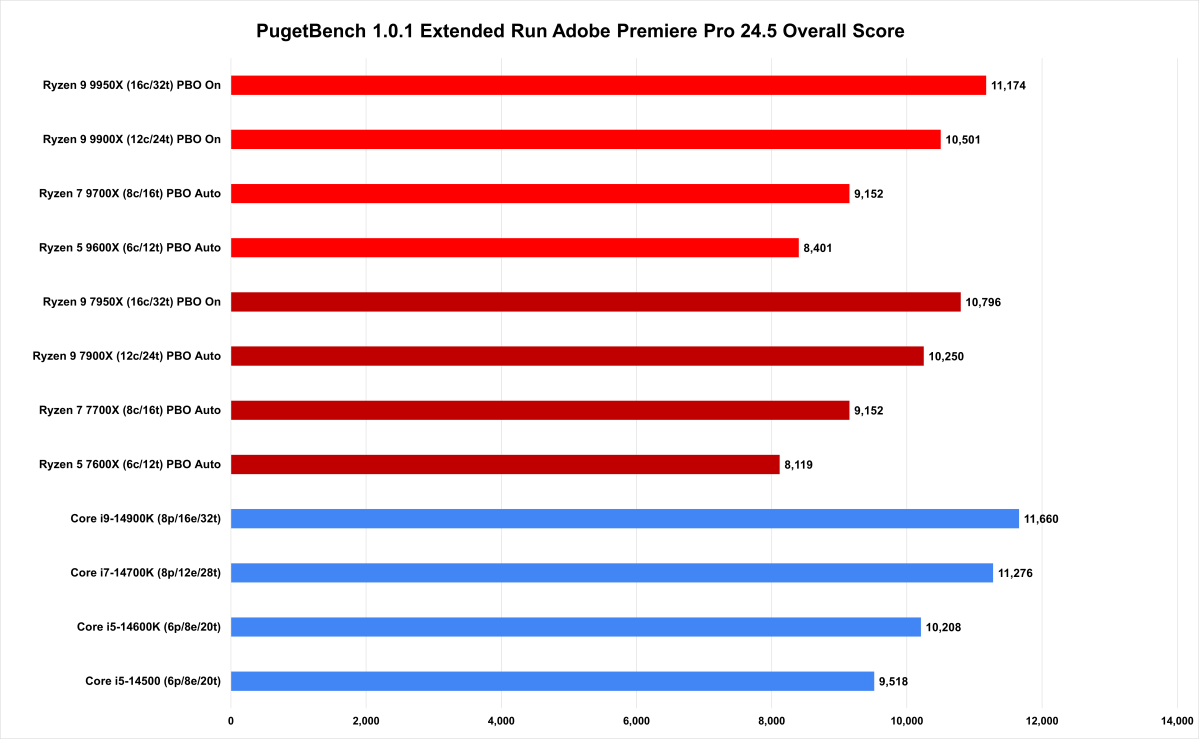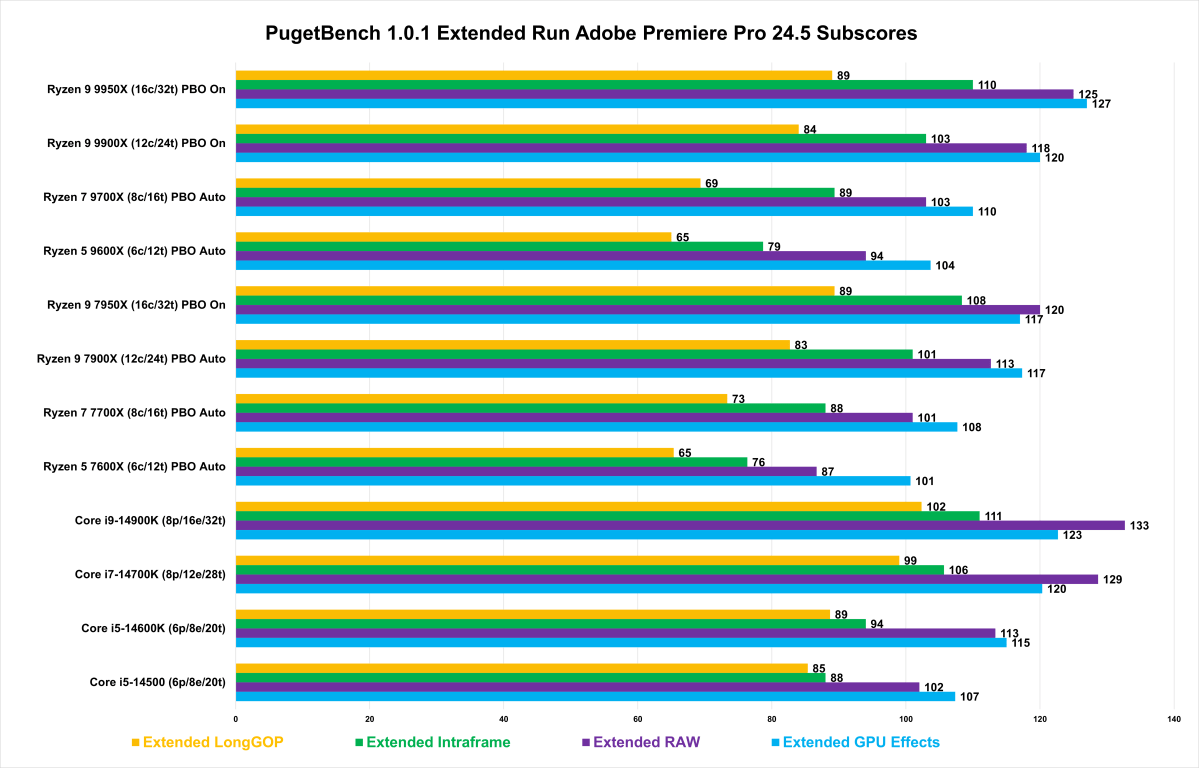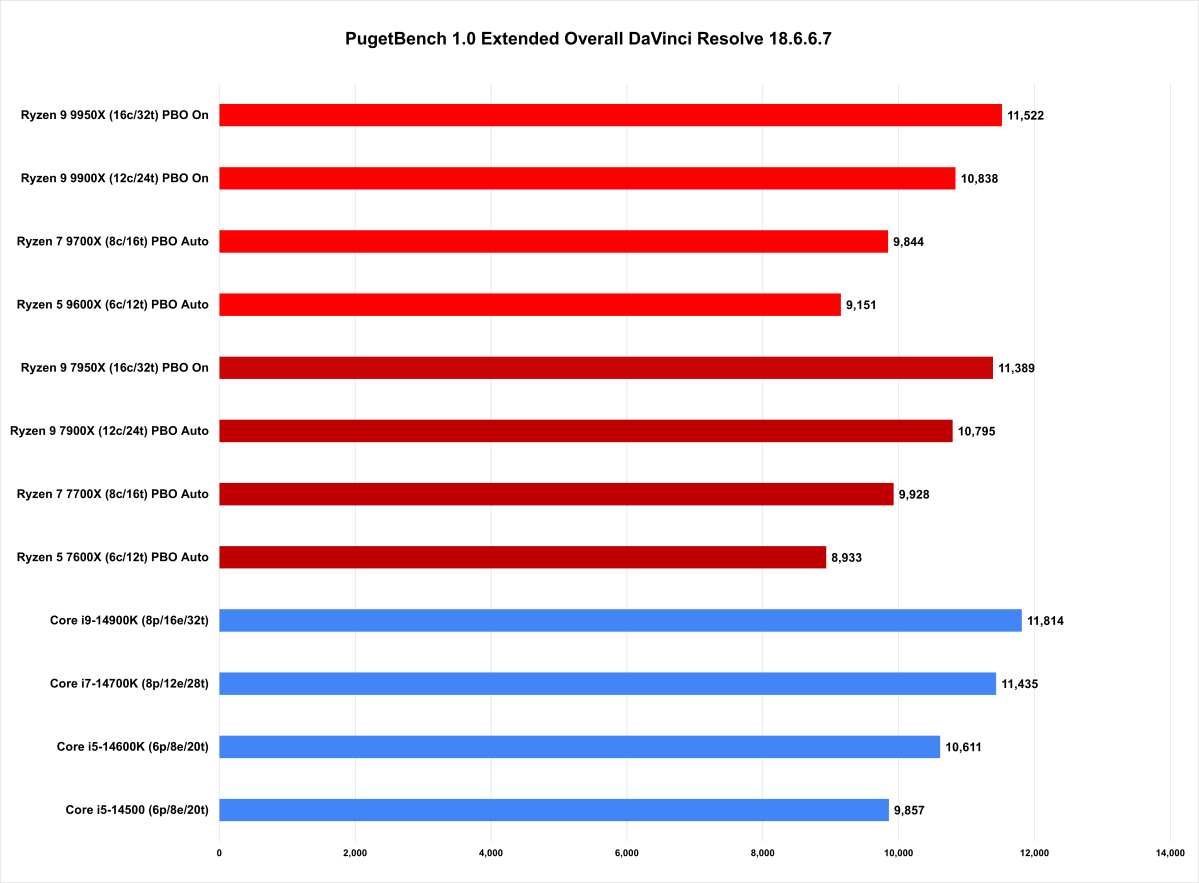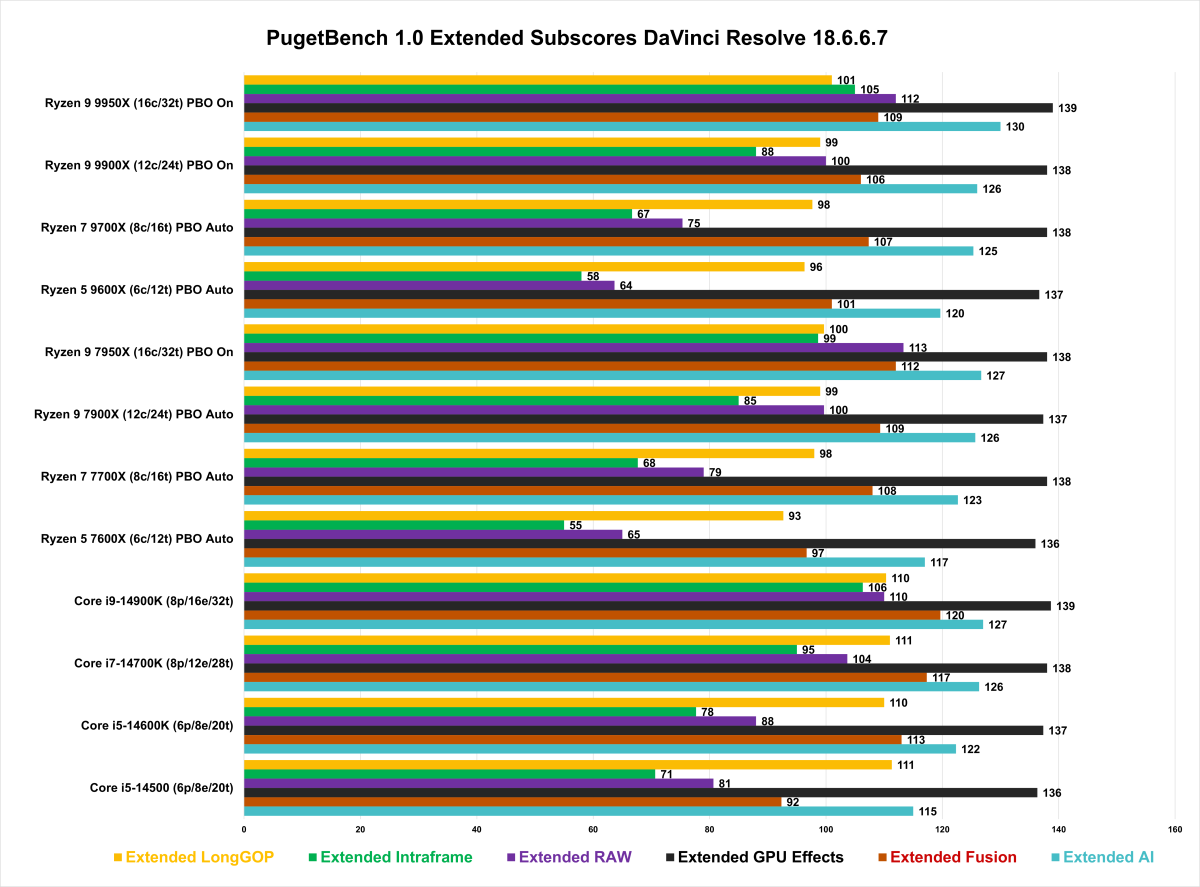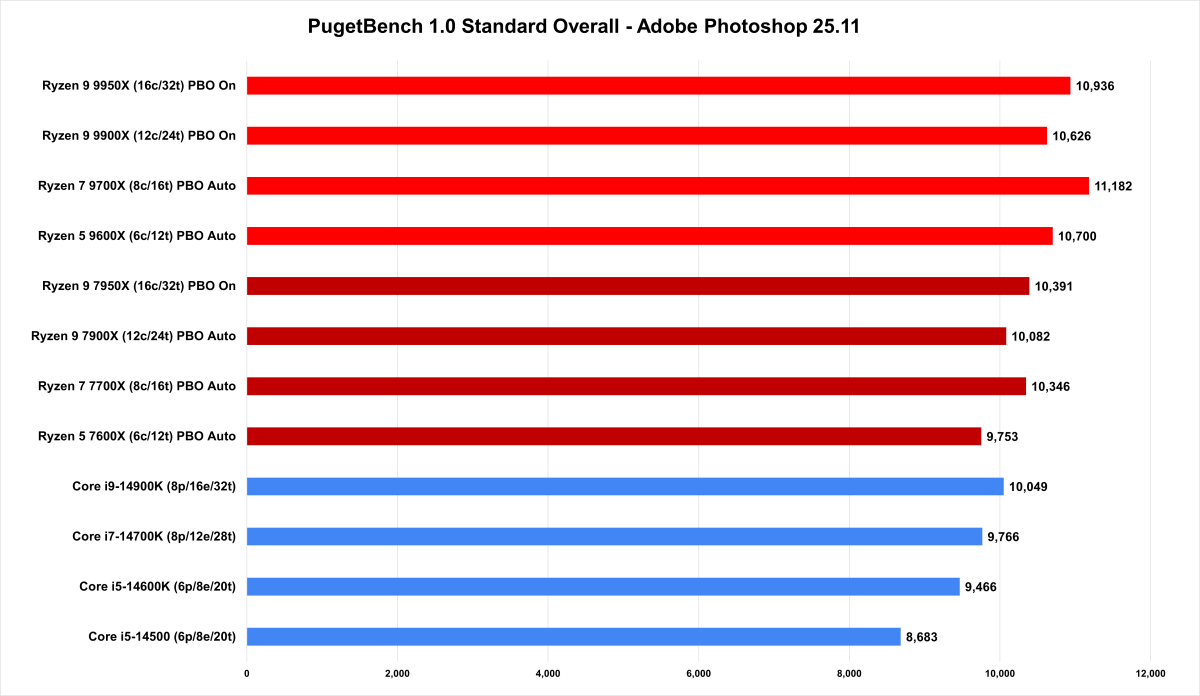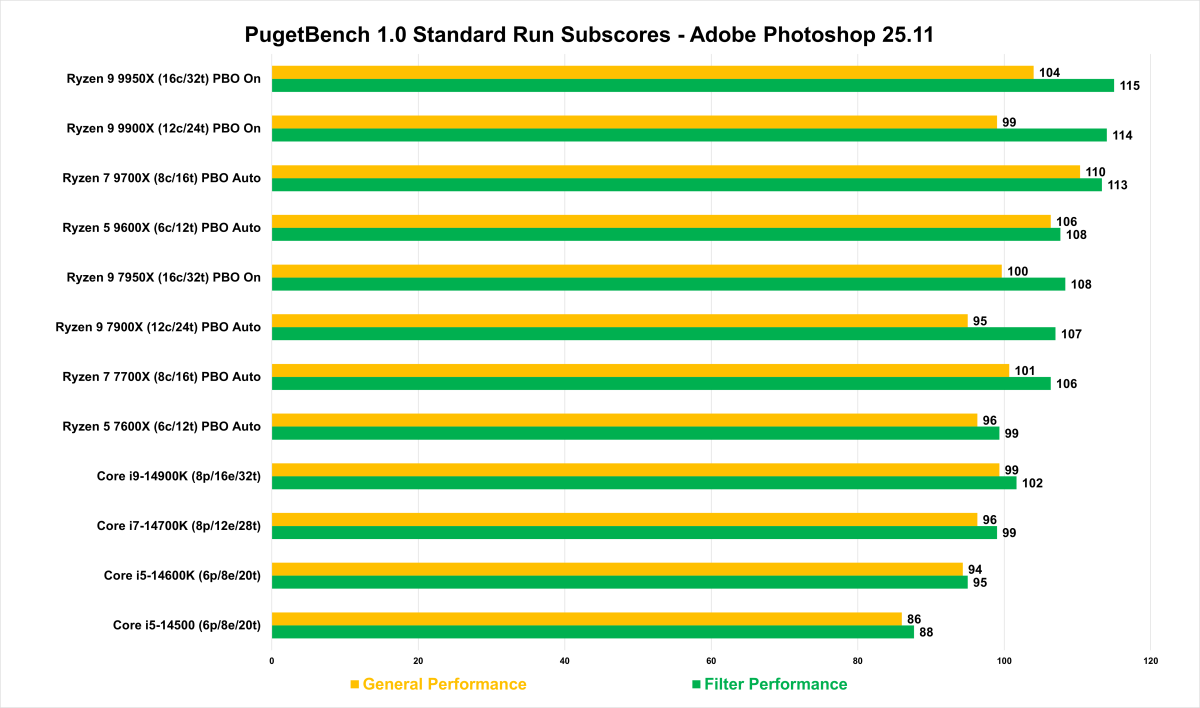AMD Ryzen 9000 CPUs: 8 must-know details before you buy
After a brief delay, AMD’s Ryzen 9000 hit shelves earlier this month—but to everyone’s surprise, the first processors came with caveats. Despite offering plenty to like, the $279 Ryzen 5 9600X, $359 Ryzen 7 9700X, $499 Ryzen 7 9900X, and $649 Ryzen 9 9950X also sported uneven performance improvements.
The reasons for those benchmark results are nuanced, however. We at PCWorld even delayed the release of our deep-dive review to better tease out those fine-grain details. (You can watch us explain why in this YouTube video, where we also discuss our initial results in-depth.) But if you’re wondering if Team Red’s latest silicon is worth your cash and just want the quick version, here are the top 8 things you should know. For a much deeper dive into performance, check out our full review video.
Big improvements in single-core performanceThe benchmark numbers for single-core performance are similar across the initial lineup of Ryzen 9000 processors—and those results put them at the top. In Cinebench R23, one of the rendering benchmarks we use to put CPUs through their paces, the 6-core, 12-thread Ryzen 5 9600X outdid the 7600X by 13 percent. Similarly, the 8-core, 16-thread Ryzen 7 9700X posted an almost 15 percent increase over the 7700X.
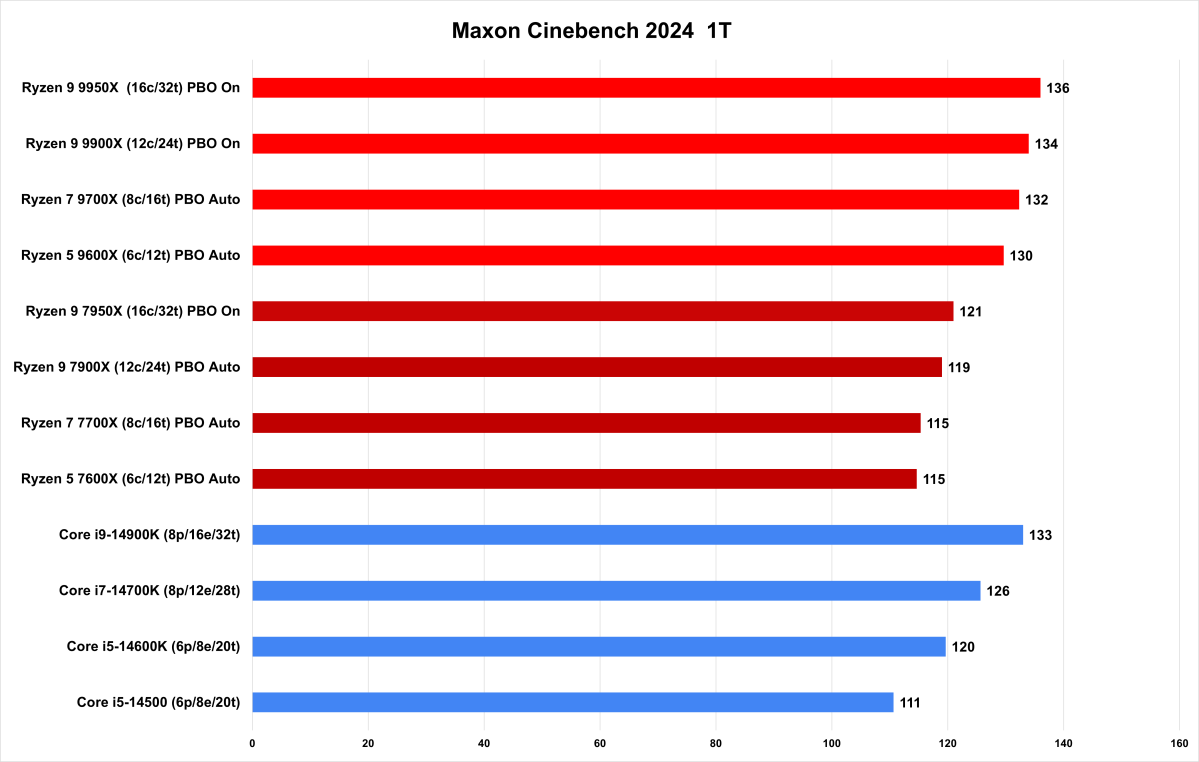 For Cinebench, longer bars indicate better performance.
For Cinebench, longer bars indicate better performance.
 For Cinebench, longer bars indicate better performance.
For Cinebench, longer bars indicate better performance. Adam Patrick Murray / Will Smith / PCWorld
 For Cinebench, longer bars indicate better performance.
For Cinebench, longer bars indicate better performance. Adam Patrick Murray / Will Smith / PCWorld
Adam Patrick Murray / Will Smith / PCWorld
For their part, the 12-core, 24-thread Ryzen 9 9900X and 16-core, 32-thread Ryzen 9 9950X offer an almost 12 percent uplift over their Ryzen 7000 predecessors. Overall, these gains are solid improvements—and give AMD a slim edge over Intel.
Against the Core i7-14700K, the 9700X offers a 4.7 percent boost in performance, and is neck-and-neck with the more powerful Core i9-14900K. Meanwhile, the 9600X pulls ahead of the Core i5-14600K by a little over 8 percent, which is a nice win for users mindful of their budgets. The 9900X and 9950X basically hold even with the Core i9-14900K—a step up compared to Ryzen 7000’s disadvantage against Intel’s 14th-gen chips.
But lackluster gains in multi-core performanceHowever, Ryzen 9000 loses some shine when you look at its multi-core performance. Benchmark results can be notably affected by motherboard settings—and the way many reviewers test (including PCWorld) doesn’t show the silicon’s full range.
During our initial round of testing, the 9700X gave essentially the same performance as the 7700X in Cinebench R23’s multithreaded test—the thin 1.48 percent doesn’t exceed a normal testing margin of error (usually between 2 to 3 percent).
For Cinebench and Blender, longer bars indicate better performance. For Handbrake (which evaluates speed of test completion), shorter bars are better.
The outcome was better for the 9600X, with a roughly 7 percent increase in Cinebench compared to the 7600X, but that uplift is modest compared to previous generational jumps. Typically, 15 to 20 percent begins to push the envelope (as seen in single-core performance).
This story repeated with similar effect in our other rendering and encoding benchmarks used to evaluate multi-core performance. When looking at such minimal gains, Ryzen 9000 lags behind Intel’s 14th-gen processors. Opting for a 14700K is a whopping 72 percent performance increase in Cinebench over the 9700X, while a 14600K is an almost 60 percent boost compared to the 9600X. For anyone who needs strong multi-core performance (whether for intensive work like rendering or just heavily threaded games), Intel can look like your better bet—provided you’re comfortable with the recent concerns around 14th-gen chip performance and longevity.
But staunch Team Red fans shouldn’t despair just yet—because this isn’t the full story around multi-core performance.
Motherboard settings matter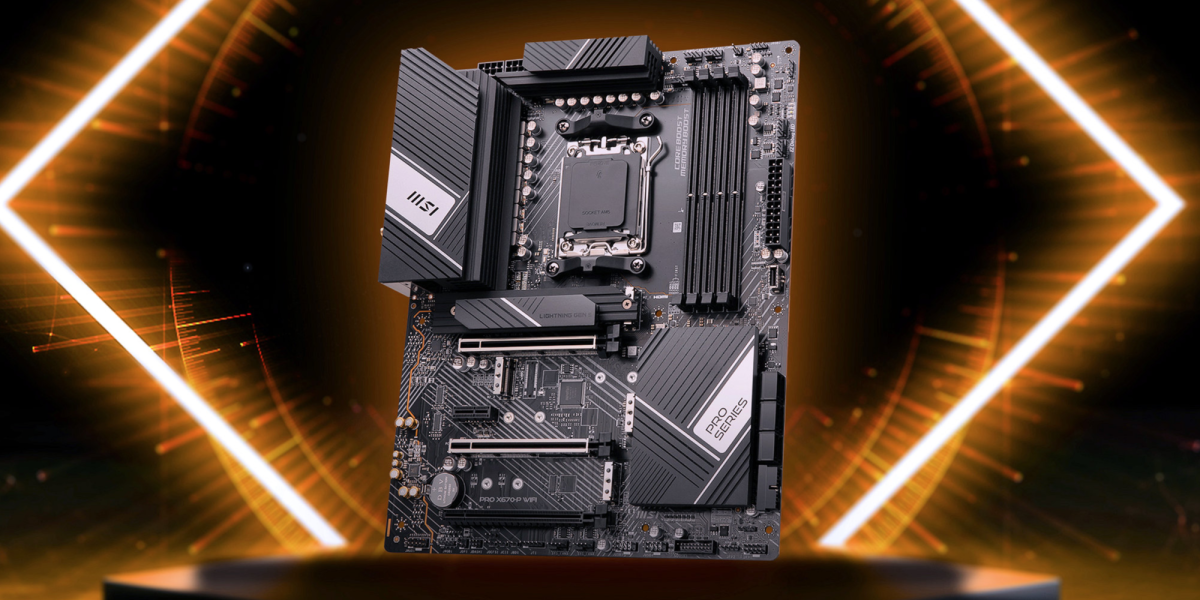

MSI

MSI
MSI
Two settings in your motherboard UEFI (sometimes still colloquially referred to as the BIOS) can greatly influence how well Ryzen 9000 performs: Precision Boost Overdrive (PBO) and RAM voltage.
Of the two, PBO plays a greater role in whether you’ll see merely meh gains, or if you’ll get closer to what AMD promises. When enabled, it dynamically feeds more voltage to the processor for clock speed increases—which provide better performance.
Not all motherboards enable PBO by default, so if you buy a Ryzen 9000 processor and want the most out of it, you’ll need to go into UEFI and ensure it’s on.
Additionally, AMD recommends running RAM at a voltage of 1.2V, rather than 1.25V (a common setting). Similar to PBO, the latter voltage can be a default on some mobos—like on PCWorld’s own test hardware, a ASRock X670E Taichi.
Changing these settings isn’t difficult, but most users are accustomed to dropping in a chip and moving on. These necessary tweaks make Ryzen 9000 feel finickier than previous generations, which didn’t need such precise handling. However, according to AMD, part of the reason for this outcome is due to the lower TDP of the Ryzen 5 and Ryzen 7 processors. With a tighter ceiling on power efficiency, the balance between performance and acceptable operating temperature is a finer line to walk.
AMD’s best chip can beat Intel’s in multi-core workloadsFor Handbrake (which evaluates speed of test completion), shorter bars are better. For all other benchmarks, longer bars are better.
On the more powerful (and power hungry) 9950X and 9900X, the gains are much larger when upgrading from their Ryzen 7000 counterparts. The 9950X, which has a 170W TDP, posts an almost 8.5 percent improvement over the 7950X in Cinebench R23’s multithreaded benchmark.
Enabling PBO for 9950X also allows it to outperform Intel’s flagship chip—at least in our rendering benchmarks. We saw a 6.5 percent lead in Cinebench R23. The difference is even more dramatic in other rendering benchmarks, like Blender’s open source tests. The 9950X posted a 30 percent increase in the suite’s Classroom test, a 27 percent gain in the Junkshop test, and a 23 percent uplift in the Monster test.
However, Intel doesn’t suffer a complete drubbing. In fact, it retains a slight lead in other workloads, like encoding and video production. Which top-tier CPU is right for you will depend on your most common (or valuable) tasks.
Spectacular power efficiencyFrom a chip nerd’s perspective, AMD’s ability to coax high-end performance out of lower-wattage CPUs is incredible. The power efficiency speaks well of the engineering—Team Red’s first two Ryzen 9000 CPUs have a default TDP of 65W, or nearly half of Intel’s base TDP of 125W for the 14700K and 14600K.
In other words, AMD’s processors are posting single-core performance as good as Intel’s using far less juice. The weaker multicore performance is less to do with an inherent weakness with the silicon design, and more to do with how hard AMD’s willing to gun the engine for the 9700X and 9600X. We’ve already seen in recent CPU generations that much of their gigantic performance leaps have to do with amount of electricity run through the chips. So as hinted by the situation with motherboard PBO settings, that’s the contrast we’re seeing here.
Stagnant gaming performance gen-on-gen (for now)

CD Project Red

CD Project Red
CD Project Red
However, the frame rates you get are the frame rates you get—and if you’re a gamer who’s been waiting to upgrade, you’ll want to feel that your money is being invested in a solid bump up.
Fact of the matter is, Ryzen 9000’s gaming performance doesn’t move the needle much past Ryzen 7000—and in some cases, appears to go backward. You’ll see it most in challenging games, as evidenced by our Cyberpunk 2077 benchmark results. The small dip in the numbers gen-on-gen can mostly be attributed to that standard margin of error for testing, as mentioned above, but the 9950X actually drops by as much as 4 percent.
Even in games more sensitive to CPU improvements, the gains are modest, topping out at about 7 percent in Tom Clancy’s Rainbow Siege Six and F1 2023. For Total War: Warhammer III, the biggest uplift among the chips is even smaller, coming in at just over 4 percent.
But while this is what you get currently, it may not be what you can expect in the future—as suggested by a conversation PCWorld recently had with AMD.
Further performance improvements could be comingAfter two weeks of furor over Ryzen 9000 benchmark results, AMD released a community blog post addressing the discrepancies between its initial gaming-performance promises and what reviewers saw—then dived into the details during a live interview with PCWorld.
The key reason cited: A difference in testing parameters, each of which gets covered in the video embedded above. Of note was AMD’s use of an alternative “Super Admin” mode in Windows for testing, which imitated coming Windows branch predictor optimizations that help speed up processor computations. Those updates were not available to reviewers at launch, and only just became available to the public in a preview version of Windows 11‘s upcoming annual update (“24H2”). Other differences in testing that impacted performance claims were VBS security settings, configurations for comparative Intel systems, and the games chosen for benchmarking.
The actual improvements you can expect when the 24H2 update releases (and later on, Windows 10’s equivalent update) are hard to predict, however. The games you play will influence your performance gains. AMD’s original Computex presentation could become the reality for some Ryzen 9000 owners, but those benefits won’t spread evenly across the board.
For the future, AMD says it intends to change its games testing to include more real-world outcomes, rather than focusing on pure isolation of CPU performance. That’ll be of benefit to everyone watching new chip announcements; while a more traditional, academic approach to benchmarking lets chip nerds argue furiously over generational improvements, us normies will get a better idea of how CPU upgrades will benefit our daily gaming.
Lower prices than Ryzen 7000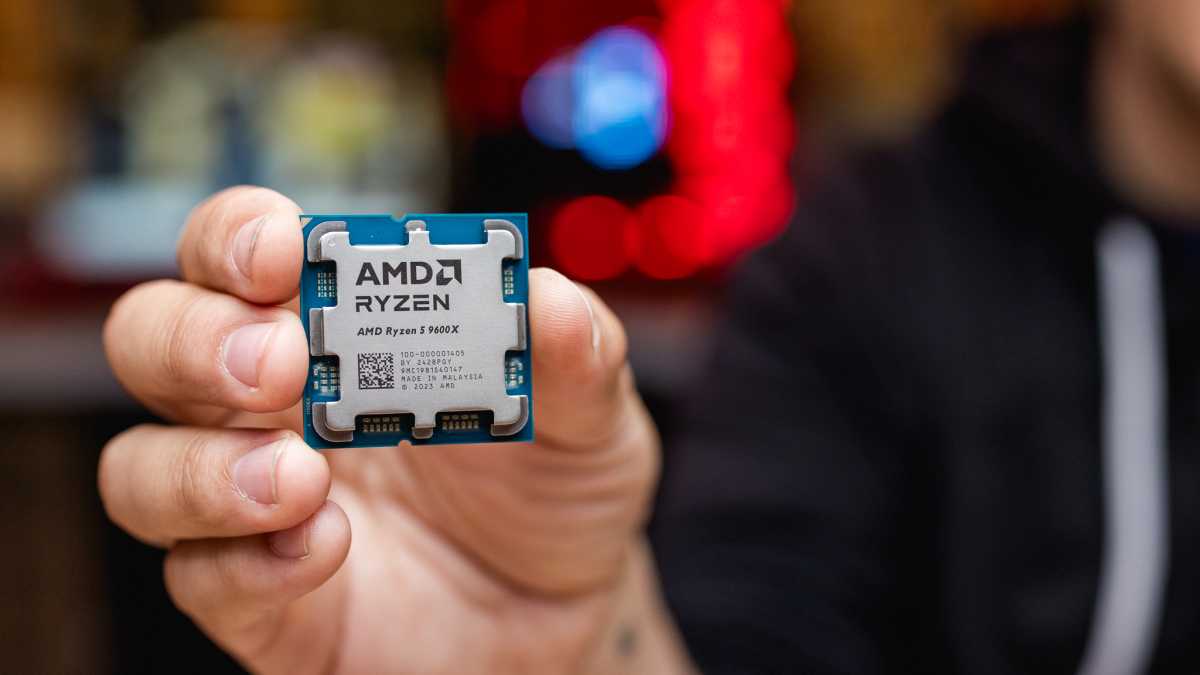

Willis Lai / Foundry

Willis Lai / Foundry
Willis Lai / Foundry
To AMD’s credit, the company is asking for less money this time around—so for those watching their budgets like a hawk, a minimal boost in gaming performance may not matter as much.
The entire lineup sees a reduction, with the Ryzen 9 processors dropping by $50 compared to last gen, the Ryzen 7 9700X going down by $40, and the Ryzen 5 9600X shaving $20 off the asking price. (AMD hasn’t confirmed Ryzen 9 prices yet but Best Buy leaked them.)
- Ryzen 9 9950X – $649
- Ryzen 9 9900X – $499
- Ryzen 7 9700X – $359
- Ryzen 5 9600X – $279
While these prices don’t return to AMD’s incredibly affordable MSRPs from earlier generations (like Ryzen 3000), they definitely undercut the competition. Currently, Intel’s rival chips have street prices of approximately $550 for the 14900K, $380 for the 14700K, and $300 for the 14600K. If you want additional multicore performance, you’ll have to pay for it.

